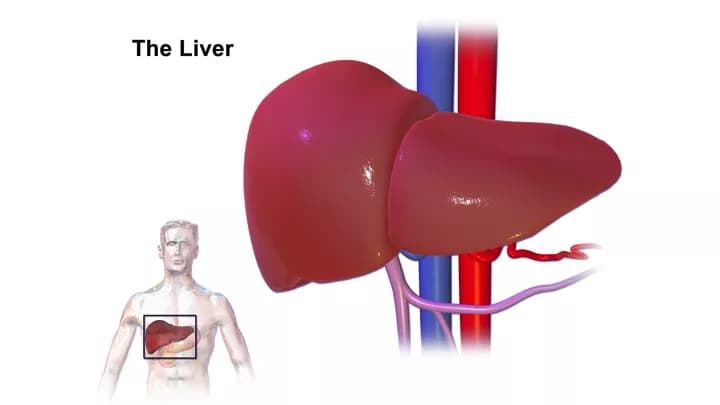
Inflammatory Bowel Disease, Nonalcoholic Fatty Liver Disease May Be Linked, Suggests Research
Research led by a Houston Methodist gastroenterologist shows that patients who have inflammatory bowel disease (IBD) for more than two decades have a higher risk of developing nonalcoholic fatty liver disease (NAFLD).
A steady rise in obesity in a patient population that has traditionally been underweight led Bincy Abraham, M.D., at Houston Methodist Hospital, to focus her research on two diseases seen as rising epidemics in the United States.
Abraham's team published findings in Inflammatory Bowel Diseases® (IBD Journal), showing IBD patients who were also diagnosed with nonalcoholic fatty liver disease were older and lived with IBD longer. They also found patients with the combined IBD/NAFLD diagnosis had fewer metabolic risk factors than patients with NAFLD alone. Abraham's next step is to determine if there are factors associated with IBD that lead to the development of nonalcoholic fatty liver disease.
Abraham, director of the inflammatory bowel disease program at Houston Methodist Hospital, led a retrospective study of more than 400 of her patients separated into three groups -- 1) patients with both IBD and NAFLD; 2) patients with inflammatory bowel disease; and 3) patients with nonalcoholic fatty liver disease.
The overall prevalence of NAFLD among patients with IBD was more than 13 percent, supporting similar research in recent years. However, Abraham's team found that IBD patients diagnosed at an older age (e.g., 45 instead of 35), those with metabolic syndrome risk factors (diabetes, hypertension, obesity, and high cholesterol), and most importantly, those with longer duration of disease regardless of age at diagnosis, are more likely to develop NAFLD.
"Our findings suggest that just having inflammatory bowel disease doesn't prevent you from getting fatty liver disease," said Abraham. "We need to study a broader patient population to not only validate these findings but also determine other factors, such as inflammatory cytokines, that may contribute to the development of fatty liver in the IBD population."
Patients with IBD diagnosed with fatty liver disease typically require aggressive risk factor reduction such as increase in physical activity; weight loss; changes in diet; and treatment of hyperlipidemia, diabetes, and hypertension.
If left uncontrolled, patients with nonalcoholic fatty liver disease can also develop fibrosis and cirrhosis, and can lead to liver failure. About 20 percent of patients with IBD, primarily Crohn's disease and ulcerative colitis, have liver disease.
IBD Journal, published by the Crohn's & Colitis Foundation, is a journal dedicated to research in inflammatory bowel disease.
Materials provided by Houston Methodist. Note: Content may be edited for style and length.
Disclaimer: DoveMed is not responsible for the accuracy of the adapted version of news releases posted to DoveMed by contributing universities and institutions.
Primary Resource:
K. Glassner; H. Malaty; and B. Abraham. Among Patients with Inflammatory Bowel Disease. IBD Journal, April 2017 DOI: 10.1097/MIB.0000000000001085
Related Articles
Test Your Knowledge
Asked by users
Related Centers
Related Specialties
Related Physicians
Related Procedures
Related Resources
Join DoveHubs
and connect with fellow professionals

0 Comments
Please log in to post a comment.